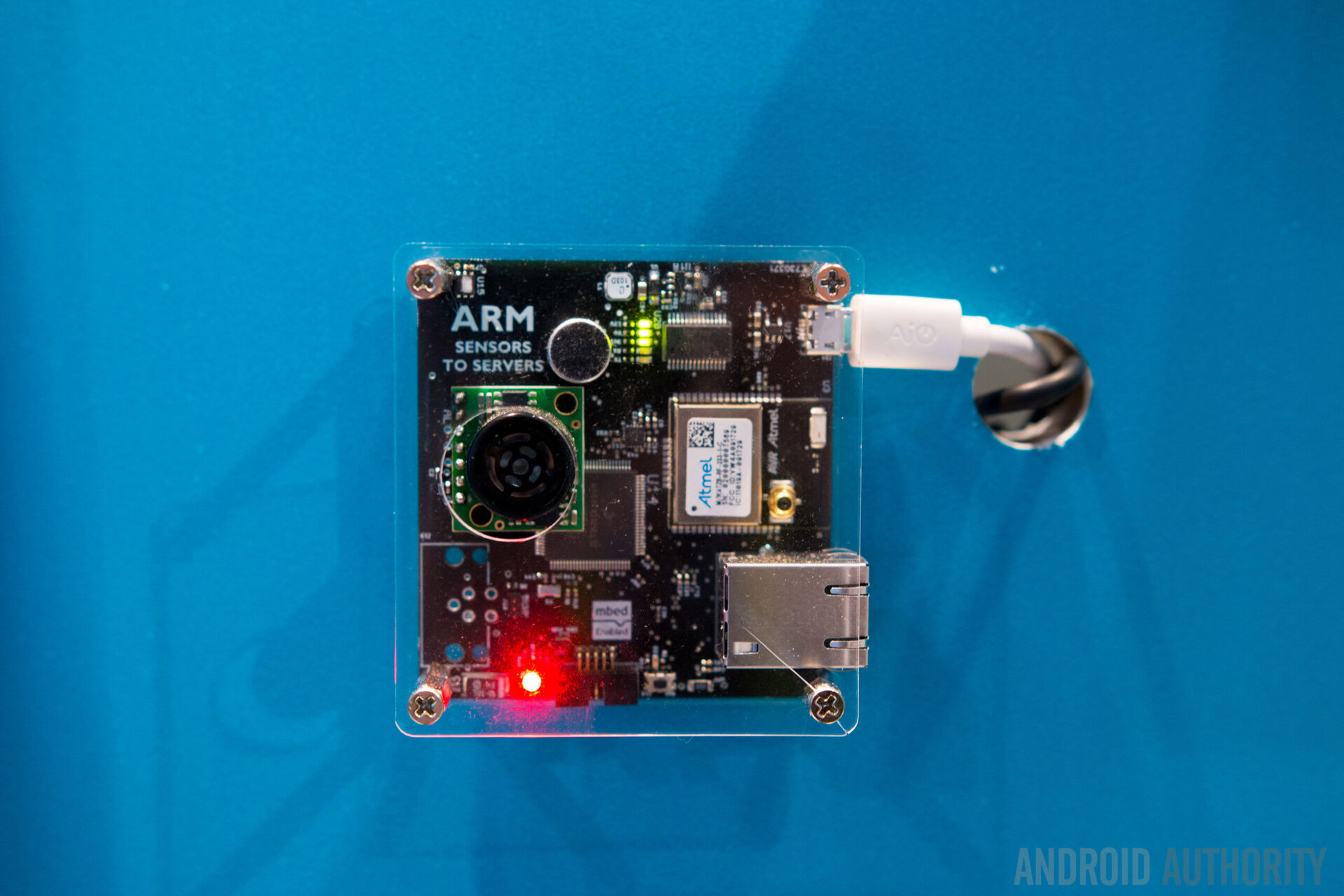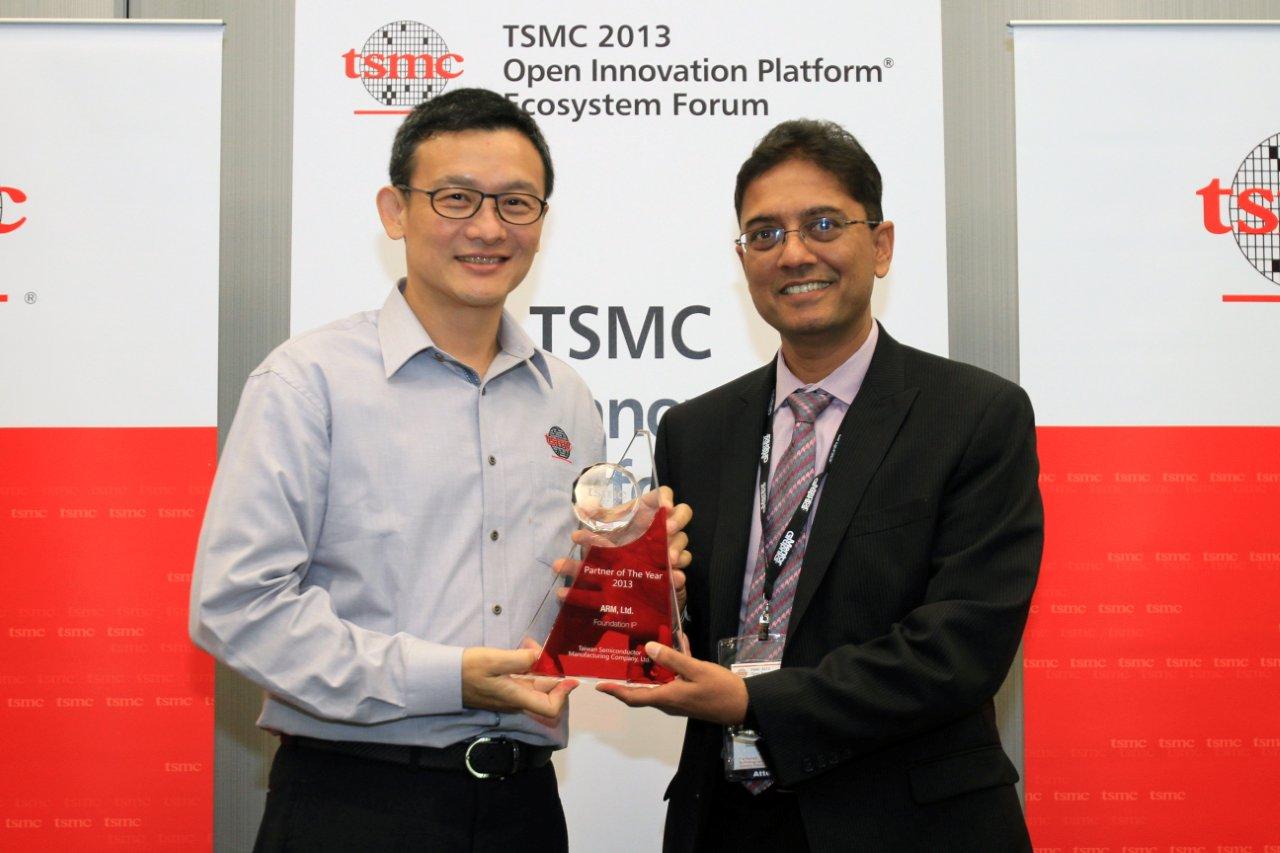Affiliate links on Android Authority may earn us a commission. Learn more.
ARM and TSMC team up to create a 7nm chip
Published onMarch 15, 2016

In what is essentially the corporate version of a fist-bump of solidarity, ARM and TSMC have agreed to join forces to develop a 7nm chip. It won’t be the world’s first – IBM created a 7nm chip in the summer of last year – but ARM and TSMC are hoping to be the first to get a chip that size to the commercial market.

Intel and IBM had been in a race to develop the 7nm for some time. It was a race that IBM won, but the prohibitively expensive cost of manufacturing meant that their model of the component had no hope of seeing widespread use until 2018 or even 2019. Intel is still in the race too, but it looks like their 7nm chips may not even see the market until 2020. It’s ARM and TSMC’s goal to beat both companies to the punch, but the match-up with IBM will be a challenge.

This joint effort is part of an ongoing comradery between the two organizations, which have been working in concert to develop 16nm and 10nm chips. We’re expecting their 10nm chips to drop sometime around Q1 2017, a few months ahead of Intel’s 10nm chips. If Intel maintains the stunted pace they’ve been going at, it’s possible that IBM and ARM and TSMC may outstrip the long-time industry leader in a meaningful sense for the first time.
When IBM first developed the 7nm chip, it credited the breakthrough to the use of extreme ultraviolet lithography, a technology that uses a wavelength of just 13.5nm. Interestingly, TMSC doesn’t appear to be using this capability for developing their model of a 7nm chip, perhaps because EUV lithography is currently a major hurdle for any kind of mass production.
It’ll be interesting to see how all of this shakes out. To see the full press release regarding ARM and TMSC’s partnership, click the button below. In the meantime, let us know what you think about these ever-decreasing chip sizes. What does this mean for the mobile industry and the tech world at large? Tell us your thoughts in the comments!
[press]HSINCHU, Taiwan & CAMBRIDGE, United Kingdom–(BUSINESS WIRE)–ARM and TSMC announced a multi-year agreement to collaborate on a 7nm FinFET process technology which includes a design solution for future low-power, high-performance compute SoCs. The new agreement expands the companies’ long-standing partnership and advances leading-edge process technologies beyond mobile and into next-generation networks and data centers. Additionally, the agreement extends previous collaborations on 16nm and 10nm FinFET that have featured ARM® Artisan® foundation Physical IP.
“Existing ARM-based platforms have been shown to deliver an increase of up to 10x in compute density for specific data center workloads,” said Pete Hutton, executive vice president and president of product groups, ARM. “Future ARM technology designed specifically for data centers and network infrastructure and optimized for TSMC 7nm FinFET will enable our mutual customers to scale the industry’s lowest-power architecture across all performance points.”
“TSMC continuously invests in advanced process technology to support our customer’s success,” said Dr. Cliff Hou, vice president, R&D, TSMC. “With our 7nm FinFET, we have expanded our Process and Ecosystem solutions from mobile to high performance compute. Customers designing their next generation high-performance computing SoCs will benefit from TSMC’s industry-leading 7nm FinFET, which will deliver more performance improvement at the same power or lower power at the same performance as compared to our 10nm FinFET process node. Jointly optimized ARM and TSMC solutions will enable our customers to deliver disruptive, first-to-market products.”
This latest agreement builds on ARM and TSMC’s success with previous generations of 16nm FinFET and 10nm FinFET process technology. The joint innovations from previous TSMC and ARM collaborations have enabled customers to accelerate their product development cycles and take advantage of leading-edge processes and IP. Recent benefits include early access to Artisan Physical IP and tape-outs of ARM Cortex®-A72 processor on 16nm FinFET and 10nm FinFET.[/press]